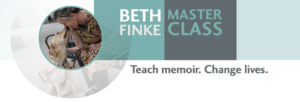Chicago friends who read Mondays with Mike this week have been asking what I thought of the inauguration ceremony for our new mayor. Monday was the very first time I have ever attended an inauguration ceremony of any kind, and if they’re all like that one, I’m going again!

That’s my friend Lynn and me at Wintrust Arena Monday.
I hadn’t even thought of attending the inauguration until I got word there’d be an accessibility team involved. I knew then that I’d be able to access the site to order tickets using the speech synthesizer on my laptop. And? It worked! All by myself I ordered two tickets, and soon afterward received that friendly note Mike inserted in his Mondays with Mike post. It may seem like a small thing, but having a team of accessibility volunteers go out of its way to send an email letting us know they are “glad you can join us for the Inauguration Ceremony” is huge.
Any time I attend an event that has any connection to the Chicago Cultural Accessibility Coalition, I bring a sighted friend with me. I suppose that might sound contrarian, but here’s the thing: When people who don’t have disabilities come along and witness how smoothly accessibility can work, many become allies.
So When Mike wasn’t able to go, I invited my friend Lynn LaPlante Allaway. Remember when so many women ran in local elections during the 2018 midterms? Lynn as one of them. In her spare time from being a professional musician and mother of four lively kids, she ran for Chairman of the DuPage County Board in Illinois, and was narrowly defeated by the incumbent. I knew she’d want to celebrate Lori Lightfoot’s win, and she drove in from the suburbs to take me there.
As predicted, parking was difficult. Lynn ended up dropping me and my Seeing Eye dog off at a crosswalk a block away from the entrance. As other drivers sped by in search of available spots, she called out directions. “Cross this street, turn left and it’s about a block down.” Lynn took off then in hopes of finding parking.
Knowing there’d be a member of the Inauguration Accessibility Team waiting at the door helped buoy my confidence. I had no qualms about my Seeing Eye dog getting me there. “We got this, Whitney!”
Whitney guided me around other able-bodied attendees figuring out where they were going, and when a volunteer for the Inaugural Accessibility Team called out “Hello, Beth!” I knew we were at the right place.
An aside here. Some of the work-arounds and methods I use to get around in a sighted world are, well, unconventional. And when you have an obvious disability, the number of awkward reactions you hear in a public spot like this can be deflating. You start apologizing. You feel ashamed. For what? For being who you are?
But no apologies necessary at the inauguration ceremony Monday. The woman who met me at the door introduced herself and guided me to security, and there, another accessibility team member asked if I had any keys or metal on me (I had to temporarily take off my “Lightfoot” election pin!) and explained how security wanted me to lift my arms to be searched.
Once past security, I gave Whitney the “follow” command so we could track a volunteer who was leading us to an elevator. “You want an audio listening device?” another volunteer in the elevator asked. I thought it over a second. It could take an hour or more for Lynn to find a parking spot out there. I could be sitting in the stadium by myself with Whitney for quite a while. If I took one of those audio listening devicess, though, I’d have to get it back to them after the ceremony was over, and I needed to rush then to lead a memoir-writing class in Lincoln Park at 2 p.m. I told them I thought it was great they were offering it, but I’d pass. “Cool,” they said. No judgement.
The elevator dinged, the doors opened, and the volunteer had us follow her to a box seat with enough room at my feet for Whitney to sprawl. “You all set?”“she asked. I nodded yes, she trusted my answer and headed back downstairs to greet other guests. The acoustics were so alive that I thought we were right by the stage. It wasn’t until later that I discovered we were as far back as you could get. I had to laugh –perfect seats for someone who didn’t need to see what was going on!
It did take Lynn quite a while to find a parking spot, and for a mere minute there I wished I’d taken one of the audio description devices. But then I thought better of it. I was enjoying the vibe just as it was. Everyone there wanted to be there. Spirits were high. Some voices had accents, some were youthful, some were weathered. People were greeting each other, happy, proud.
And the live music in the background? Spirited, dramatic, beautiful. Everything from gospel to symphonic to patriotic.
Using the dictation app on my iPhone, I texted with Lynn to let her know the number of the section we’d been seated in. After a half-hour or more she found a parking spot and made it to Whitney and me in our fancy box seats. “Now, that was a journey!” she laughed.
The ceremony opened with Miguel Cervantes, the star of Hamilton, singing the National Anthem and ended with bagpipes leading us back outside. And in-between? Lori Lightfoot was inaugurated, and then, as the new leader of Chicago, Mayor Lightfoot gave her inaugural speech. What a thrill to be there, cheering with the crowd. I was right where I belonged, proud to be a Chicagoan.

